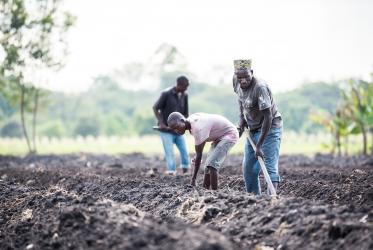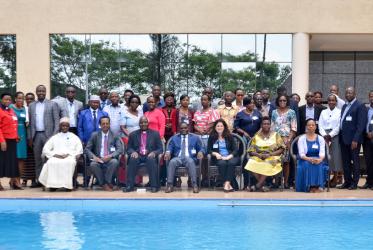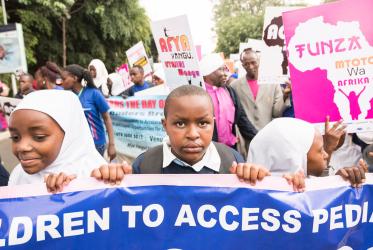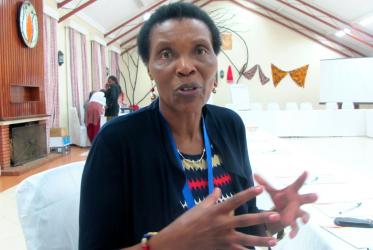Displaying 1 - 15 of 15
Workshop on HIV stigma, treatment adherence opens in Tanzania
29 September 2021
Moravian Church in Tanzania launches Thursdays in Black
10 September 2019
WCC hones training on attitudes toward HIV treatment
06 December 2018









